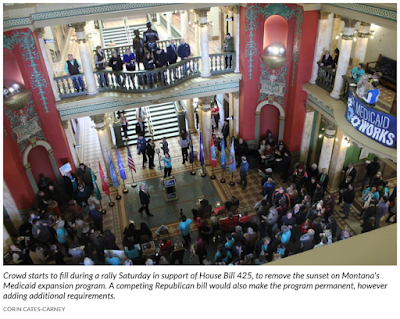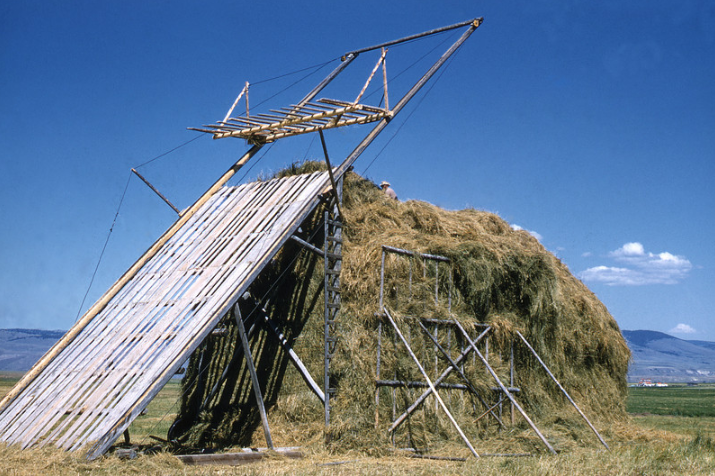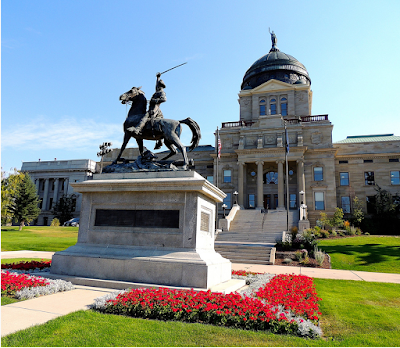Published in today's Missoulian ( Sunday, March 10, p. E3 ): Medicaid Expansion Works As Is We at Holy Spirit Episcopal Church, drawing on our religious traditions, scripture, and the ministry and example of Jesus, support continuing Medicaid Expansion to care for those who simply cannot afford other health care. Former Archbishop of Cape Town, South Africa, Desmond Tutu, once said, “...the good news to a hungry person is bread.” He could just as well have said that the good news to a sick -person is health care. Jesus' ministry was filled with healing the sick. He cured them, gave them back their health, renewed life, and restored. He told us to do likewise. Medicaid Expansion in Montana will expire in June unless continued by the State Legislature. Few people have anything but praise for this program. Some 95,000 Montanans have coverage they didn't have before. They receive medical care earlier, which many recipients say has improved thei...











